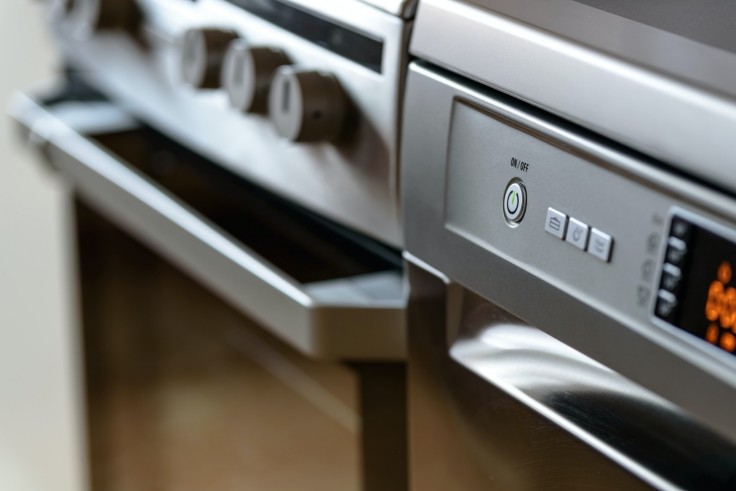
In a world where energy consumption and costs are on the rise, what if you could drastically slash your utility bills and contribute positively to the environment just by choosing the right appliances?
Sounds appealing, right? Whether you're a first-time homeowner or looking to update your aging appliances, the market offers cutting-edge, energy-efficient appliances that can transform your home into a bastion of sustainability.
They offer a win-win solution: reducing your carbon footprint while simultaneously cutting down on your energy costs.
In this post, we will be delving into five standout appliances that combine innovative technology with outstanding energy efficiency, promising significant savings over their lifetime, and helping you tone down your energy bills.
Energy Star Refrigerators
As one of the most essential appliances in any home, refrigerators are operational around the clock, which means they consume a substantial amount of energy.
According to Energy Star, a non-profit organization that certifies energy-efficient appliances, a modern Energy Star certified refrigerator uses less energy than a simple light bulb.
Despite the advanced energy-saving technology, these refrigerators do not compromise on features or functionality.
They come with efficient insulation systems, precise temperature and defrost mechanisms, and energy-saving compressors, which are the primary reasons behind their impressive energy performance.
With a certified refrigerator, you can expect to cut down your energy bills significantly over the appliance's life span.
Tankless Water Heaters
Traditional water heaters can be energy guzzlers, continuously heating water even when it's not needed. In contrast, a tankless or on-demand water heater provides hot water only when necessary, thus saving energy.
Moreover, tankless water heaters are typically more efficient in their operation than conventional models. They can be 24%-34% more energy-efficient for homes that use as much as 41 gallons or less of hot water daily.
While their upfront costs are a bit higher than the traditional models, the energy savings over time can offset the initial investment, making them a wise choice for homeowners who prioritize energy efficiency.
Smart Thermostats
Smart thermostats, like the Nest Learning Thermostat or the Ecobee SmartThermostat, are revolutionizing temperature control at home.
These intuitive devices learn your habits over time, adjusting the temperature according to your routine and comfort. With Wi-Fi connectivity, they can be controlled remotely, which means you can regulate your home's temperature even when you're not there.
Data from the U.S. Department of Energy suggests that homeowners can cut down their annual heating and cooling expenses by as much as 10% just by reducing their thermostat setting by 7°-10°F for a daily period of 8 hours. Now, consider the cost-saving possibilities when this adjustment is handled automatically by a device.
LED Lighting
LED lights are another highly efficient home appliance that is currently being used to replace traditional incandescent bulbs.
LEDs are more efficient, converting about 95% of the energy they consume into light, compared to the mere 10% efficiency of incandescent bulbs. This drastically reduces the amount of energy wasted as heat.
In terms of financial savings, an LED bulb consumes 75% less energy and lasts 25 times longer than traditional light bulbs.
They also offer better light quality, which can enhance the aesthetics and comfort of your home while lowering your energy costs.
High-Efficiency Washing Machines
Lastly, consider investing in a high-efficiency washing machine. These high-efficiency washers, especially those with the Energy Star label, use 33% less water and 25% less energy than traditional models.
These Energy Star-certified washers also have a greater tub capacity, which means you can clean the same amount of laundry with fewer loads, saving you both time and money.
Other Ways You Can Boost Your Home's Energy Efficiency
Apart from buying these energy-efficient appliances for your home, there are other things you can do and strategies you can implement to further enhance your home's overall energy efficiency. These include:
Improving Insulation
Insulation plays a crucial role in preventing heat loss or gain in your home. A poorly insulated house will require more energy for heating or cooling, leading to higher energy bills.
You have to take the necessary steps to improve your home's insulation so you can maintain a comfortable temperature with less reliance on your heating and cooling systems.
This will not only decrease your energy consumption but also extend the lifespan of these systems.
Check your home's insulation in areas such as the attic, walls, floors, and basements, and consider professional insulation services if necessary.
Efficient Appliance Maintenance
Maintaining appliances efficiently is a powerful yet underrated way to boost energy efficiency. Regular maintenance optimizes appliance performance, prolongs its lifespan, and often averts expensive repairs or replacements.
However, the cost of maintaining these appliances often adds up quickly, particularly in weather-affected regions like Mississippi.
According to Cinch Home Services, a renowned home warranty company, states like Mississippi, where the weather can impose a significant financial burden on homeowners who have to regularly repair or maintain their appliances, may need to leverage the advantages of a Mississippi home warranty instead of straining their pockets.
A home warranty can help you cover regular servicing, essential repairs, and even the replacement of old, inefficient appliances to further your energy-saving goals.
Practicing Mindful Energy Consumption
Sometimes, the most impactful changes come from simple actions. Being mindful of your energy usage habits can have a substantial effect on your energy bills.
For instance, make it a practice to turn off lights, fans, and other appliances when leaving a room. Consider air-drying your clothes when possible, rather than using a dryer.
Unplug chargers that are not in use. These small actions, when added up, can also lead to noticeable energy savings.
Wrapping Up
While each of these appliances and devices can help you contribute significantly to a more energy-efficient and cost-effective home, it's important you also follow the tips offered.









